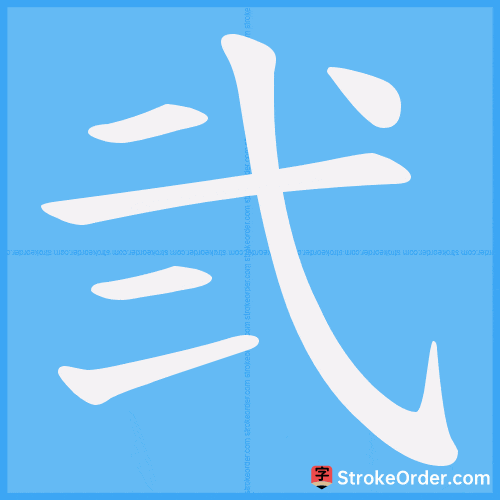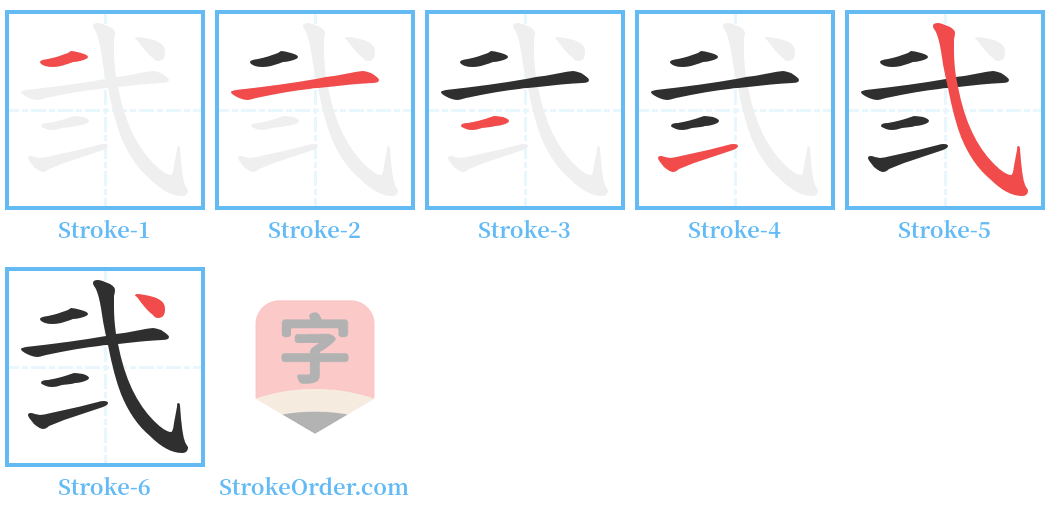弐 Stroke Order
Animated Stroke Order of 弐

Stroke Order Diagrams for 弐

Information of 弐
Pinyin
èr
Radical
弋
Strokes
6 strokes
Usage
★★
Definition
弐:
1. Anciently same as “贰”.
2. Adverb. 贰 means to assist or to add benefit. — "Shuowen" (说文). Note: it should be interpreted as to assist and to add benefit. "The gui (a ritual vessel) is paired with cauldrons." — "I Ching, Hexagram Kan" (易·坎卦).
3. The uppercase form of two. Because of "贰" for the welfare of the people. — "I Ching, Xici" (易·系辞).
4. Also refers to: 贰端 (two ends); 贰统 (dividing a unified imperial lineage into two).
5. An ancient country name. Chu's Quxia planned alliances with 贰 and Zhen. — "Zuo Zhuan" (左传).
6. To divide into two. 贰, meaning to add. — "Guang Ya, Explanation of Terms" (广雅·释诂一).
7. Also refers to: 贰觞 (serving wine repeatedly); 贰纪 (ancient regulations for adding food during meals).
8. To deviate; to have a divided heart. The people carry divided intentions. — "Guo Yu, Zhou Yu" (国语·周语上). Note: "divided heart" means having conflicting intentions.
9. Also refers to: 贰志 (different intentions; divided heart); 贰虑 (divided thoughts; indecision).
10. To assist.